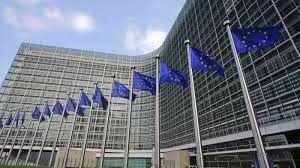
So in the end Boris Johnson and Nigel Farage managed to scare the most vulnerable part of the electorate in the U.K. into voting for Brexit and their victory has reportedly wiped out $2 trillion of the world’s stock market value and created a higher degree of concern for the future than at any point in recent memory!
The good news is that the process will, most likely, be a slow one. In the first place the referendum is legally non-binding and thus the government in the United Kingdom can take as long as it needs to officially inform Brussels of its desire to leave. Secondly, with the resignation of David Cameron, the country has no Prime Minister and as Cameron himself said the country will need “fresh leadership” to lead the process of seperation.

According to the The Guardian, Boris Johnson is favored to succeed Cameron in October and has said there “is no need or haste”. Finally EU law allows for two years for the negotiation process after receiving official notification so nobody needs to sell their homes in Europe anytime soon and most things will continue as before for at least a year or two.
Regardless of who ends up leading the Tories, I would make the following recommendation based on my own analysis of the current situation which was discussed in a post a few weeks ago.
In the first place, Britain needs the EU and the EU needs Britain. There are, for example, 380,000 British subjects living in Spain, 250,000 in Ireland and 170,000 in France! According to fullfact.org, the total is 1.2 million Brits living in Europe and about 3 million Europeans living in the UK.
Britain’s industry and financial institutions are are also deeply connected to Europe and it makes little sense to lose the advantages that the UK’s membership has brought based on such a slim election result.
Secondly, the structure and workings of the European Union are however very slow, complex, and perhaps more bureaucratic than democratic. One would hope that the victory of the LEAVE campaign will serve as a wake up call to Europe and that it will undertake serious, fundamental reform.
Putting these two ideas together does, I believe, outline a positive scenario for Brexit and this takes me to my advice or Mr. Johnson or whoever ends up leading the process. The basic idea is to negotiate a comprehensive agreement which leaves Britain in the European Economic Area and leaves most of the key aspects o the relationship pretty much as they are. Exceptions would be made on a few particularly media friendly items such as the Common Agricultural Policy and immigration.
 Such an agreement will take years to put together and meanwhile, British diplomats should help in every way they can to encourage reform in Brussels. Reform will be more urgent than ever because other countries will be watching how this all plays out and may begin to fall like dominos. The goal should be to re-make the EU such that it is more agile and less expensive and, at the same time, more democratic and in touch with real people’s issues.
Such an agreement will take years to put together and meanwhile, British diplomats should help in every way they can to encourage reform in Brussels. Reform will be more urgent than ever because other countries will be watching how this all plays out and may begin to fall like dominos. The goal should be to re-make the EU such that it is more agile and less expensive and, at the same time, more democratic and in touch with real people’s issues.
This whole process will take us to the Spring or summer of 2018 at which time the Tory Leader will either be able to declare victory for the fantastic treaty they have negotiated or simply hold another referendum stressing how much the EU has changed and that Britain might as well stay in after all.

